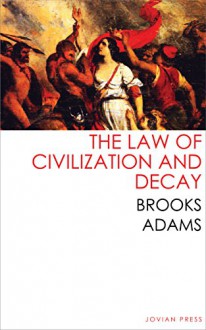When the Romans first emerged from the mist of fable, they were already a race of land-owners who held their property in severalty, and, as the right of alienation was established, the formation of relatively large estates had begun. The ordinary family, however, held, perhaps, twelve acres, and,...
show more
When the Romans first emerged from the mist of fable, they were already a race of land-owners who held their property in severalty, and, as the right of alienation was established, the formation of relatively large estates had begun. The ordinary family, however, held, perhaps, twelve acres, and, as the land was arable, and the staple grain, it supported a dense rural population. The husbandmen who tilled this land were of the martial type, and, probably for that reason, though supremely gifted as administrators and soldiers, were ill-fitted to endure the strain of the unrestricted economic competition of a centralized society. Consequently their conquests had hardly consolidated before decay set in, a decay whose causes may be traced back until they are lost in the dawn of history.The Latins had little economic versatility; they lacked the instinct of the Greeks for commerce, or of the Syrians and Hindoos for manufactures. They were essentially land-owners, and, when endowed with the acquisitive faculty, usurers. The latter early developed into a distinct species, at once more subtle of intellect and more tenacious of life than the farmers, and on the disparity between these two types of men, the fate of all subsequent civilization has hinged. At a remote antiquity Roman society divided into creditors and debtors; as it consolidated, the power of the former increased, thus intensifying the pressure on the weak, until, when centralization culminated under the Cæsars, reproduction slackened, disintegration set in, and, after some centuries of decline, the Middle Ages began...
show less

